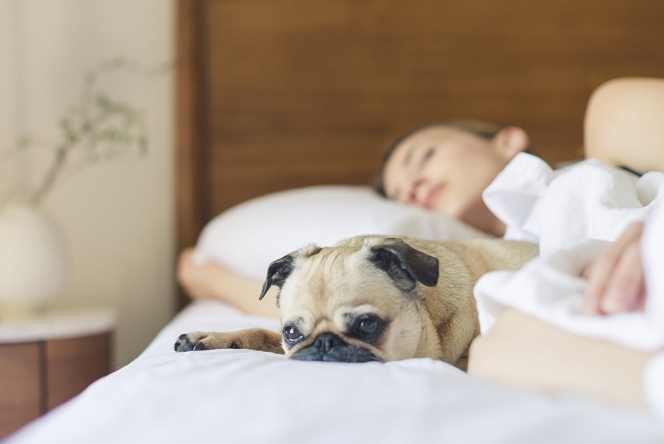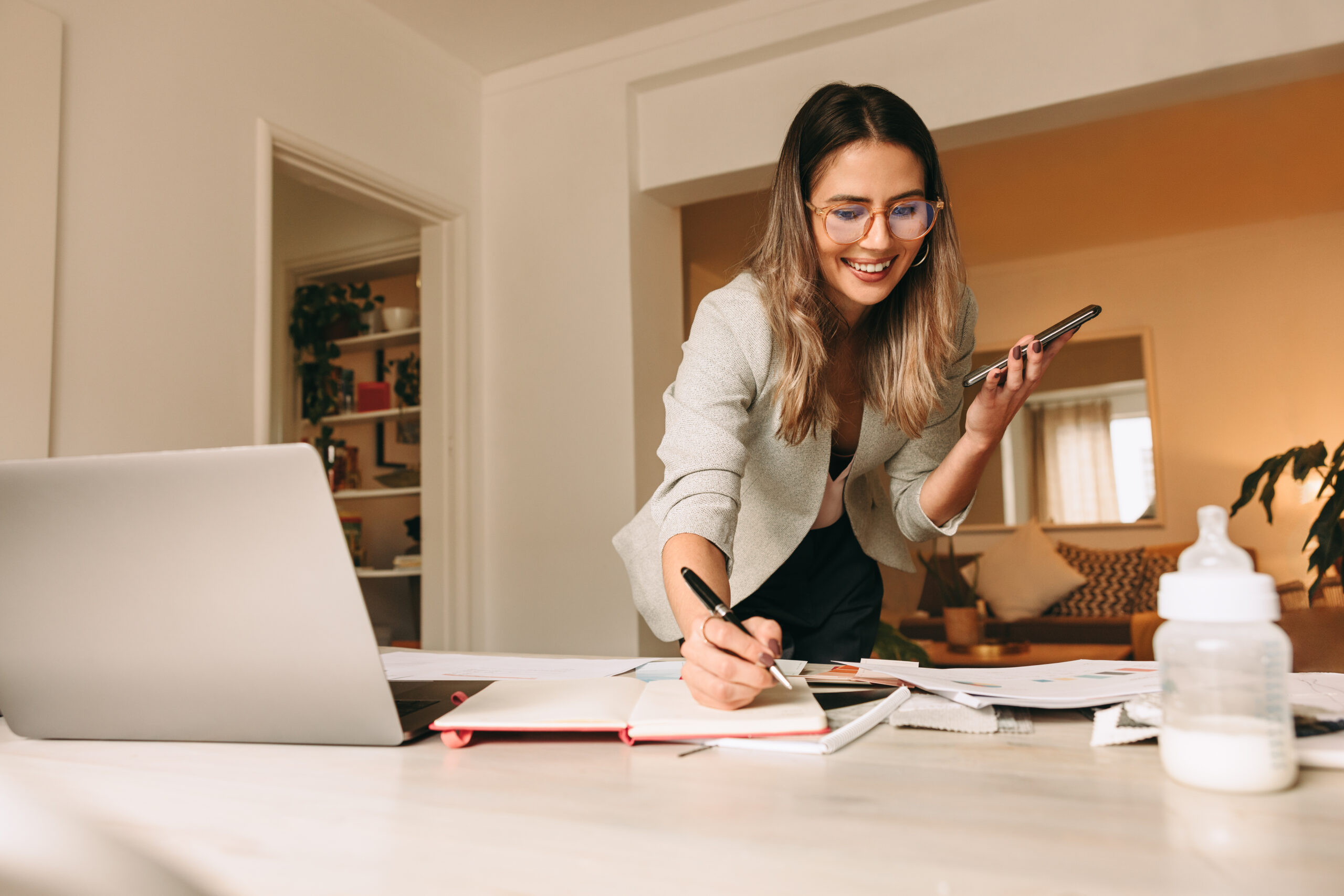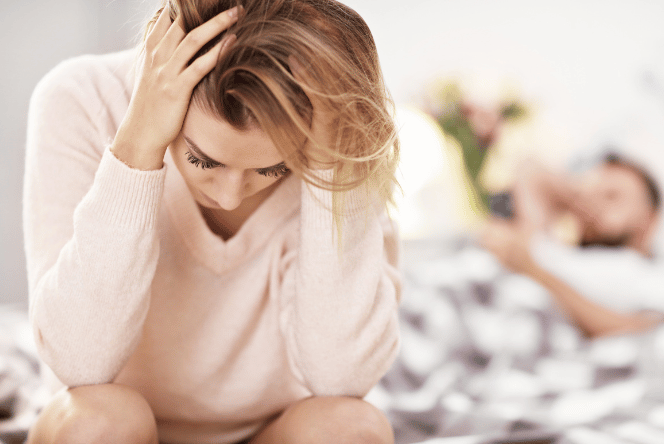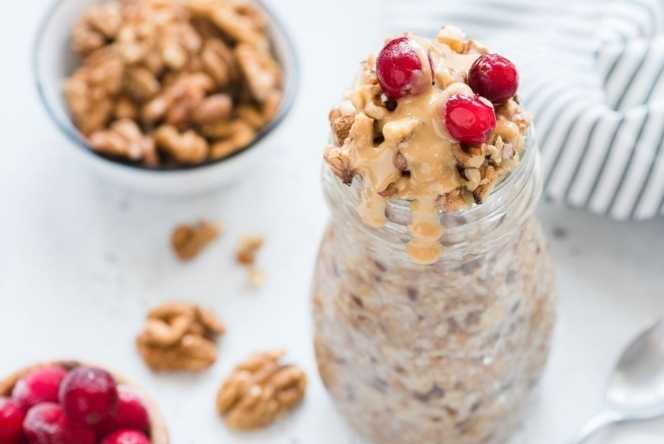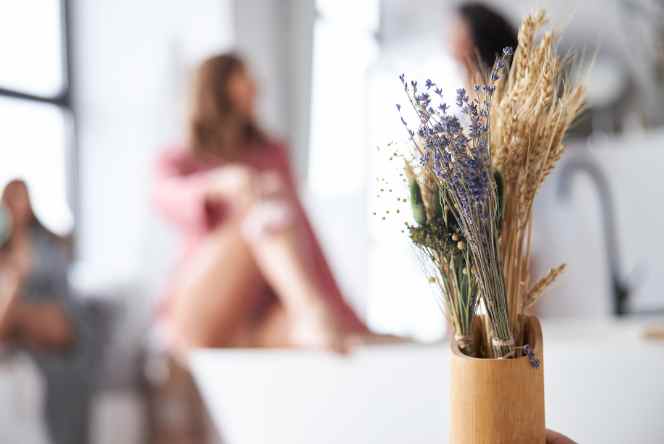Nearly 70 million Americans suffer from some form of insomnia. That’s a lot! And it’s likely this epidemic stems from our inability to fully let our bodies wind down before bed. Think about it: How many nights do you lie in bed watching TV, scrolling on your phone or going over the next day’s to-dos? These common activities make it difficult for our bodies to prepare for seven to eight hours of quality sleep. Not getting enough sleep directly impacts our appearance, causing more dark circles, redness and other common skin woes. Here are six tips on how to get better sleep tonight, starting with a solid bedtime routine.
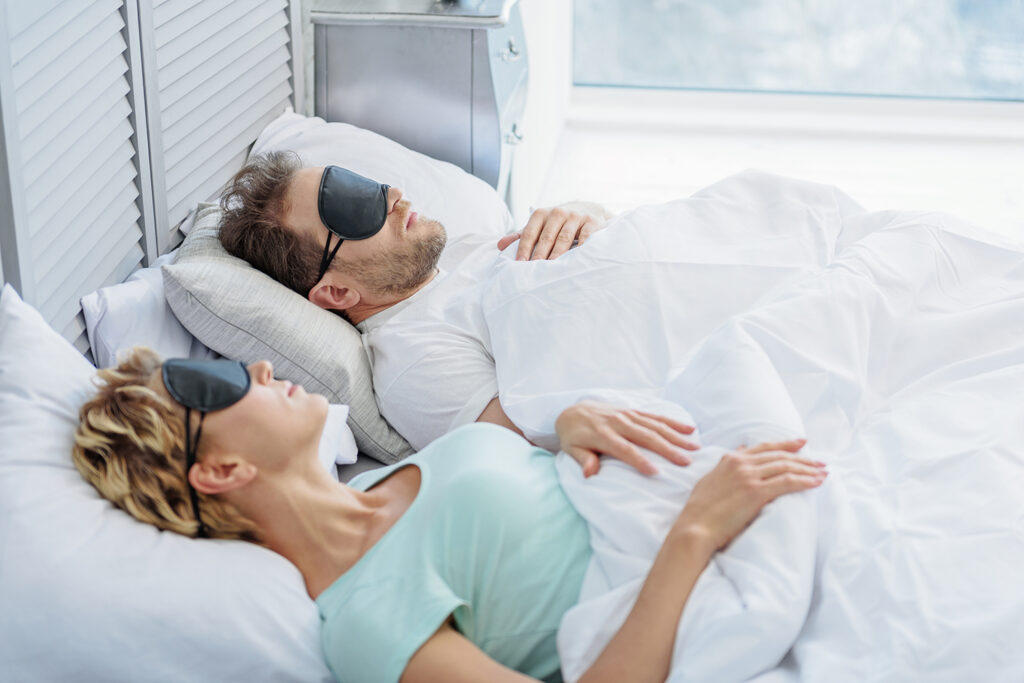
1. Start a Bedtime Routine
It’s important to let your body know when it’s time to start winding down. A consistent nighttime ritual will signal when bedtime is near and it’ll also help you relax. Some things you can do are practice breathing exercises, take a warm bath or go for a quick walk. (Studies show exercise can even be effective in reducing symptoms of insomnia!)
Going to bed and waking up at the same time each day, giving yourself at least seven hours of rest, also helps. Even on weekends and while on vacation, a consistent schedule can be a solution to how to get better sleep throughout the night.
2. Limit Screen Time
If you are currently using your TV, phone or computer as a way to “relax” before bed, then listen up! Doing so can actually hinder your ability to fall asleep because of the blue light the screens emit. This light mimics sunlight, tricking our circadian rhythm and making it difficult for our bodies to wind down. There are a few solutions to this, the most obvious being to limit screen time at night before bedtime. But since that may be easier said than done, you can try amber-tinted glasses to wear after dark, which help reduce exposure to blue light. You can also use the “Night Shift” mode on your devices, which has a similar effect.
3. Create a Restful Environment
The state of your bedroom can be an answer to how to get better sleep at night. Experts recommend a dark space, which helps signal to your circadian rhythm it’s nighttime. This can also aid in your body’s natural melatonin production, a hormone that helps regulate your body’s sleep cycle. You can wear a sleep mask or hang blackout curtains for the best results.
The ideal temperature for sleeping is between 60 and 67 degrees Fahrenheit, according to Dr. Whitney Bowe in her book, “The Beauty of Dirty Skin.” She also recommends keeping your bedroom clutter-free, which helps reduce stress before bed.
4. Limit Caffeine and Alcohol Intake
This is especially important for those who have trouble falling and staying asleep. Caffeine may seem like an obvious culprit of causing sleepless nights, but alcohol can be just as problematic. Alcohol stresses your liver and disrupts our body’s sleep cycle, reducing the amount of deep sleep we experience. REM sleep is important, as it’s the last phase of the sleep cycle that occurs before the cycle repeats itself. Without it, you won’t get the restful, restorative night’s sleep you’re after. I recommend avoiding caffeine and alcohol after 2 p.m. (especially for those who are more sensitive to them) since they can stay in your system for hours.
5. Avoid Eating Right Before Bed
You’ve probably heard this tip before as it relates to weight loss, but it can be a solution for how to get better sleep too. If you eat too late, your stomach doesn’t have enough time to settle before it’s time to go to sleep. Try to eat your last meal at least two hours before bedtime and eat snacks at least 30 minutes to an hour before bed, recommends Dr. Bowe.
6. Reduce Stress Levels
Of course, feeling stressed when trying to go to sleep will get you nowhere fast. Activities like journaling, meditating and reading can help reduce stress levels before bed. Doing a “brain dump” each night can also be beneficial. A brain dump is simply writing all your thoughts and to-dos down on paper so they’re not keeping you up because you’re worried about forgetting them.
Pro Tip: I highly recommend using Heart Math. It’s an amazing device that can significantly reduce your stress and anxiety levels and help you sleep better by regulating your heart rate variability and activating your parasympathetic nervous system. (Also known as the “rest and digest” system.) I use the Inner Balance Sensor, which replenishes energy, balances emotions and quiets an overactive mind.
Want to Work Together?
As an Institute for Integrative Nutrition and Duke Integrative Medicine trained health and wellness coach, I love helping women create sustainable long-term changes with their health so they can feel their best inside and out.
If you want to learn more about the best supplements for glowing skin, a strong immune system, and reduced stress, let’s chat! To get started, fill out this form to schedule a complimentary 30-minute health coaching consultation with me.
Download My Freebies
You can also stay in touch by joining the mailing list and you’ll get a free download of 10 Epic Smoothie Bowl Recipes, or 10 Ways to Repair Your Gut.
